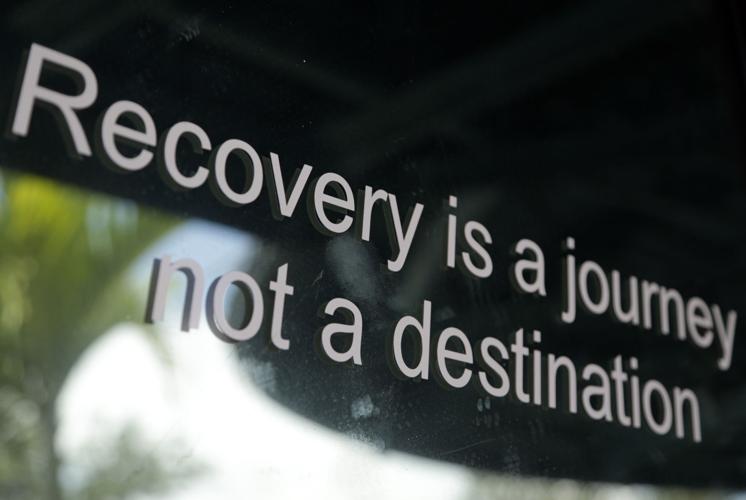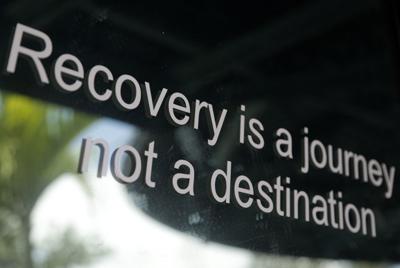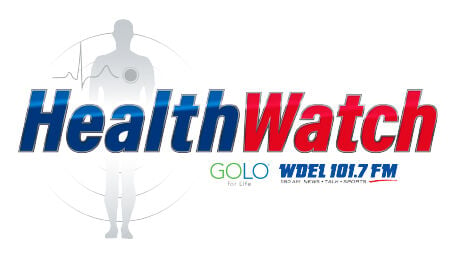Sober living homes could come under tighter state scrutiny in an effort aimed at making those homes safer for residents.
State Rep. Kendra Johnson (D-District 5) said she was surprised to learn that many sober living homes in Delaware remain unregulated.
"Folks began to come to me and say...'these homes actually exist, and they're not helping people,'" she said.
Through further discussions with experts in behavioral health and substance use disorders, Johnson discovered many on the journey to recovery, unfortunately, come across environments that aren't conducive to future success.
"Our concern and the social problem is all of these other entities that just pop up--it's like a pop-up shop at the mall...where there's no oversight," said Johnson. "It's really hard to even put your arms around how many types of these facilities exist all putting themselves out to be this place where you can come and heal and be on your road towards recovery only to learn that that's not what's happening."
When thinking about a sober living facility, Johnson said she expects counseling, clinicians, and other wrap-around services be provided, but she learned, that's not happening everywhere.
"How do we make sure that these residences are really living up to the standards of recovery-based practices and putting people on the right path, and not just being a place to lay your head? Because it's really not about a place to lay your head," she said. "When you think about recovery, you require that, but you also require individuals who are practitioners, and who are as invested in your recovery as you are, and providing you with the necessary skills and supports and counseling, if needed, so that you'll have good outcomes."
"As it stands, you really don't know which ones are the good ones versus which ones are not," the Democrat told WDEL.
Under her proposed legislation, House Bill 245 would require recovery and sober living homes to obtain licenses, accreditation, and standards of care through the Delaware Division of Substance Abuse and Mental Health (DSAM).
DSAM would create the regulations, all of which would have to be met in order for the home to receive local, state, or federal grant monies. Though the legislation, if passed, would still not take effect for several years, Johnson said that will give recovery homes expectations they can work towards complying.
"Recovery housing is an essential part of the continuum of care for those with a substance use disorder,” said Elizabeth Romero, Director of the Division of Substance Abuse and Mental Health, in a written statement. “Families often spend their savings to provide their loved ones with a safe environment for their recovery. Unfortunately, without oversight, these homes can be unsafe. This legislation will ensure that licensed recovery homes are held to a common standard and that Delawareans are protected at a crucial point in their recovery journey.”
Johnson, who represents the Bear-area, called the oversight "critical."
"It provides peace of mind and hope that 'I'm in the right place, and I'm going to receive the level of supports that I need during my recovery process,'" she said. "It not only impacts the individual, it impacts that family, that community, and it continues to ripple on."
Though there's less than a week left in the legislative session, Johnson is hopeful her bill will be heard before June 30.
"I am very, very hopeful, and I'm optimistic. I am extremely optimistic. I think that all of my colleagues...regardless of your party affiliation, this is a social problem. It is impacting our state."
Further empowering Johnson to fix the situation was the death of Marybeth Cichocki's son, Matthew D. Klosowki, who died of an accidental overdose of prescription painkillers.
“When I lost my son Matt to the opioid epidemic, I felt completely distraught and wanted answers desperately. He was staying at a sober home in Florida when he relapsed, and was left to fend for himself out in the community without access to the help he needed. His death showed me how we need to reform the system around recovery homes to ensure that they do not take advantage of vulnerable people,” said Cichocki.
The legislation will be called the "Matthew D. Klosowski Act."
"We don't want any more moms or dads to have to experience what this family has experienced, and we don't want any more Matthews," she said. "From their family tragedy, we hope to touch so many more lives and save lives as a result."
--
Here's a list of recovery homes in the Delaware Valley, certified by the Pennsylvania Alliance of Recovery Residences.
If you or someone you know needs help, call the Help is Here hotline in New Castle County at 1.800.652.2929 or 1.800.345.6785 in Kent and Sussex counties.















